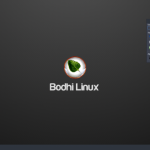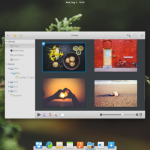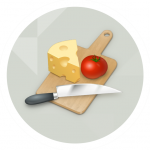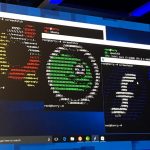OpenELEC 8.0.4 Kodi-focused Linux distro now available for PC, Raspberry Pi, WeTek, and more

If you are looking for a dedicated media box for your living room or bedroom, the first thing you should consider is Kodi. This is a media center software package that delivers a very focused consumption experience. It can even be customized with "addons," although some of them can be used for piracy -- something we do not condone.
Unfortunately, Kodi is not its own operating system, meaning it has to be run on top of an OS. Sure, you could use Windows 10, but that is overkill if you only want to run Kodi. Instead, a lightweight Linux distribution that only serves to run the media center is preferable. One of the most popular such distros is OpenELEC. It can run on traditional PC hardware, but also Raspberry Pi, and, my favorite -- WeTek boxes. Today, version 8.0.4 achieves stable release. It is a fairly ho-hum update, focusing mostly on fixes and stability.
Get the 'Practical Linux Security Cookbook' ($22 value) FREE for a limited time

Practical Linux Security Cookbook, from Packt Publishing, will teach you how to secure your Linux machines and keep them secured with the help of exciting recipes.
Whether you are new to Linux administration or an experienced user, this ebook will provide you with all the skills you need to make systems more secure.
Bodhi Linux 4.2.0 Ubuntu-based operating system now available

Bodhi is an interesting Linux distribution thanks to its lightweight nature. If you have an older PC that isn't particularly powerful, the operating system could breath new life into it. Unlike some other distributions that are light on resources, Bodhi is not ugly -- its Moksha desktop environment looks rather modern. I highly recommend giving the OS a try.
Today Bodhi reaches version 4.2.0. It is quite the boring release, as there isn't much to it. It is merely a rollup, incorporating many of the updates that were released since the previous stable version, 4.1.0. If you are already running Bodhi and have been installing updates, there is no reason to bother -- this is more for those that aren't already running the OS.
Split and join MP4 videos with MP4Tools

MP4Tools is a cross-platform collection of tools for the lossless splitting and joining of MP4 files. The package is the project of Alex Thuering, the developer behind DVD authoring application DVDStyler.
Installing MP4Tools gets you two applications, MP4Splitter and MP4Joiner. Despite the single "MP4Tools" brand, they’re separate programs with no integration.
Devuan Jessie is here -- download the systemd-shunning Debian-forked Linux distro now

One of the coolest things about open source software is the ability to fork it. What is forking? Very simply put, it is taking code and altering it so it can be taken in a different direction. This is usually done when people are dissatisfied with the current path of a project. A good example of this is LibreOffice, which is a fork of OpenOffice. As that example shows, sometimes the fork can become better and more popular than the original.
Systemd is a very polarizing topic in the Linux community, so it should come as no surprise that it would lead to a fork. You see, some Debian users disliked systemd so much that they decided to create a version of the OS without it. Devuan is that operating system, and today, the fork finally sees stable release.
Red Hat Enterprise Linux (RHEL) 7.4 Beta is here

There is a common misconception that companies can't make money from open source solutions, such as Linux. While a company like Canonical -- maker of Ubuntu -- is in a state of confusion, Red Hat continues to see success in the enterprise. The company is quite profitable with is popular Red Hat Enterprise Linux (RHEL) operating system, serving as a great example for the open source community.
Today, Red Hat announces that RHEL 7.4 has achieved Beta status. The pre-release version of the distribution is available immediately, and administrators can begin testing now. The company promises many security additions including Network Bound Disk Encryption and OpenSSL HTTP/2.0 enhancements.
Privacy-focused Debian 9 'Stretch' Linux-based operating system Tails 3.0 reaches RC status

If you want to keep the government and other people out of your business when surfing the web, Tails is an excellent choice. The Linux-based operating system exists solely for privacy purposes. It is designed to run from read-only media such as a DVD, so that there are limited possibilities of leaving a trail. Of course, even though it isn't ideal, you can run it from a USB flash drive too, as optical drives have largely fallen out of favor with consumers.
Today, Tails achieves an important milestone. Version 3.0 reaches RC status -- meaning the first release candidate (RC1). In other words, it may soon be ready for a stable release -- if testing confirms as much. If you want to test it and provide feedback, you can download the ISO now.
Microsoft blocking Linux on Windows 10 S

When the education-focused Windows 10 S was announced, many people were dubious that it could be a success. Limiting the operating system to apps from the Windows Store seems like a recipe for disaster. That opinion is understandable, as we have sort of been down this road before with Windows RT -- which failed. The concept can confuse users.
I was sort of hopeful for Windows 10 S when Microsoft made a shocking announcement at Build 2017 that it is bringing Linux distributions to the Windows Store. This gave the impression that students using the S variant of the OS would be able to tinker with Linux. Unfortunately, this is not the case as Microsoft will be blocking Linux on the new OS. In other words, not all apps in the store will be available for Windows 10 S.
elementary OS Loki 0.4.1 Linux distro now available for download

Despite the death of Unity, there is still no shortage of desktop environments for Ubuntu. In fact, there are some Linux-based operating systems that exist mostly to provide an arguably better environment and experience. Two good examples of this are Linux Mint and elementary OS. While these distros are more than just Ubuntu with an alternative DE, the UI is largely the star of the show. While Mint caters to folks that have trouble moving beyond the interfaces of yesteryear, elementary instead focuses on a forward-looking experience.
Today, elementary OS Loki -- the latest version of the operating system -- reaches a new milestone. Release 0.4.1 adds many new features, including an updated 4.8 kernel, improved Kaby Lake support, and most importantly, the all-new crowd-funded AppCenter!
GNOME Recipes for Linux comes to Apple macOS

GNOME is not just a desktop environment, but a collection of apps too. Some are useful, while others... not so much. Case in point, GNOME has a new program called "Recipes." It is quite literally a searchable database of cooking recipes. While there is nothing really wrong with creating such an app, it sort of duplicates the functionality of a search engine, like Google or Bing. If resources were unlimited, I'd say more power to the developers. The open source project largely relies on donations, however, and it could be argued that Recipes is a bit unnecessary.
There is one particularly interesting aspect of Recipes -- it is available for macOS. You see, the developers have successfully ported the app to Apple's desktop operating system. While I'm dubious that Mac users will actually want the app, it is still rather cool.
Build 2017: Ubuntu, Fedora, and SUSE Linux distributions coming to the Windows Store

When Microsoft brought Ubuntu to Windows 10, it was monumental. No, Microsoft wasn't abandoning its own operating system for Linux, but the company was showing developers that it was open-minded towards such things.
Today, Microsoft is taking its embrace of Linux a step further. With Windows 10 Fall Creators Update, the company is delivering versions of three popular Linux distributions to its Windows Store. Yes, folks, Linux on Microsoft's app store -- shocking! For now, it will be limited to Fedora, Ubuntu, and SUSE.
Fedora Linux getting native MP3 support, but who really cares?

Fedora is a wonderful Linux distribution, as it is both stable and modern. One of the biggest selling points of the operating system is that is relies on truly free open source software. This means it won't have patented or closed-source non-free packages by default. Of course, in-the-know Fedora users often added these needed packages after the fact by using third-party repositories, such as RPM Fusion.
Over the years, one of the biggest pain points for Fedora was a lack of MP3 playback due to its FOSS focus. For someone switching from Windows or Mac, it could be very surprising and upsetting that they couldn't do something as simple as play a song, or rip/convert a CD to MP3. This will soon become a thing of the past, as both MP3 decoding and encoding are coming to the operating system by default. Unfortunately, this is a case of "too little too late," as the concept of storing music locally is becoming obsolete.
Linux Mint 18.2 Ubuntu-based operating system is named 'Sonya'

Linux Mint is a very popular operating system -- for Linux, anyway. It is based on Ubuntu, but it ditches one of the most maligned aspects of its base OS -- the Unity desktop environment. Instead, it primarily offers the Cinnamon DE, which is reminiscent of Microsoft's Windows 7. Mint's popularity and relevance is in question lately, however, as Ubuntu itself has decided to stop using Unity too. It remains to be seen if GNOME 3 being the default DE for future Ubuntu releases will decrease the number of folks switching to Mint.
The uncertainty about Ubuntu has not deterred the Linux Mint team, however, as they are moving ahead with plans for version 18.2. While details about the upcoming version of the operating system are scarce, we have learned two important details. First, the code name for the OS will be "Sonya," and second, the distro will use LightDM as default display manager.
Make your own NES Classic Edition with Lakka 2.0 LibreELEC Linux distro and Raspberry Pi

The NES Classic Edition is a very fun nostalgia-based gaming console. As someone who grew up with Nintendo, I knew I wanted the mini system as soon as it was announced. A family member was able to score me one on launch day, and I've been very happy with it. Unfortunately, other people have not been so lucky. Supply was very limited and it has since been discontinued. If you do not already have it, you are sort of out of luck without paying high prices on eBay or Craigslist.
If you are only looking to replay the NES games of your youth, and you are OK with doing it in an unofficial way, emulation is another route. In fact, if you'd rather not play these games on your PC, you can instead use a Linux-based operating system and a Raspberry Pi (or other devices) hooked to a television. One such distro is Lakka, which just reached version 2.0. It is arguably better than an NES Classic Edition as it can also play games from other systems, such as SNES, Sega Genesis, Nintendo 64, PlayStation 1, and many more.
The Linux Foundation launches IoT-focused open source EdgeX Foundry, Ubuntu-maker Canonical joins

The Internet of Things is gaining in popularity just as many pundits have predicted for years. Having a connected home is easy and cost effective, thanks to devices like Amazon Echo, WeMo lights, and Nest thermostats. It really is an exciting time to be a tech-enthusiast consumer.
Unfortunately, while IoT is exciting, it can also be confusing and scary. Many devices do not work together due to fragmentation, and even worse, there can be security exploits that put the consumer's home network at risk. In other words, an internet connected refrigerator or webcam could be abused by hackers. Today, The Linux Foundation launches the open source EdgeX Foundry -- an attempt to unify and simplify the Internet of Things.
© 1998-2025 BetaNews, Inc. All Rights Reserved. Privacy Policy - Cookie Policy.